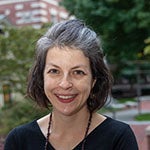The central focus of our lab’s work is how infants learn language from the world around them. More broadly, we are interested in early word learning, and how this interacts with other facets of linguistic, cognitive, and social development. In several ongoing eye-tracking, corpus, and behavioral studies we are trying to better understand how lexical development begins and builds. Our work is most centrally focused on trying to tie word learning in with developments in other areas of language acquisition (e.g. phonology, morphosyntax), as well as other areas of social and cognitive development (joint attention, category formation, etc), in order to better understand the underlying mechanisms at play. We look at these questions mostly in children who are sighted and hearing, but in one line of work, in children who are blind or deaf/hard of hearing as well.
Our general approach involves studying learners and their environments. The former requires probing the early mental representations that allow infants to quickly turn perceptual information into linguistic representations of sound and meaning that they can decode, and eventually produce. Our goal is to build a theoretical account of how infants quickly gain full-fledged competence in learning the sounds and meanings of their language(s). Understanding learners’ environments requires characterizing the information from which children learn. The goal of measuring and modeling aspects of children’s daily life is not to just describe it, but to test explanations of how everyday experiences shape language knowledge. Put more simply, our lab studies the mechanisms of early language learning by measuring babies’ early knowledge, capacities, and experiences, and testing links between them.

